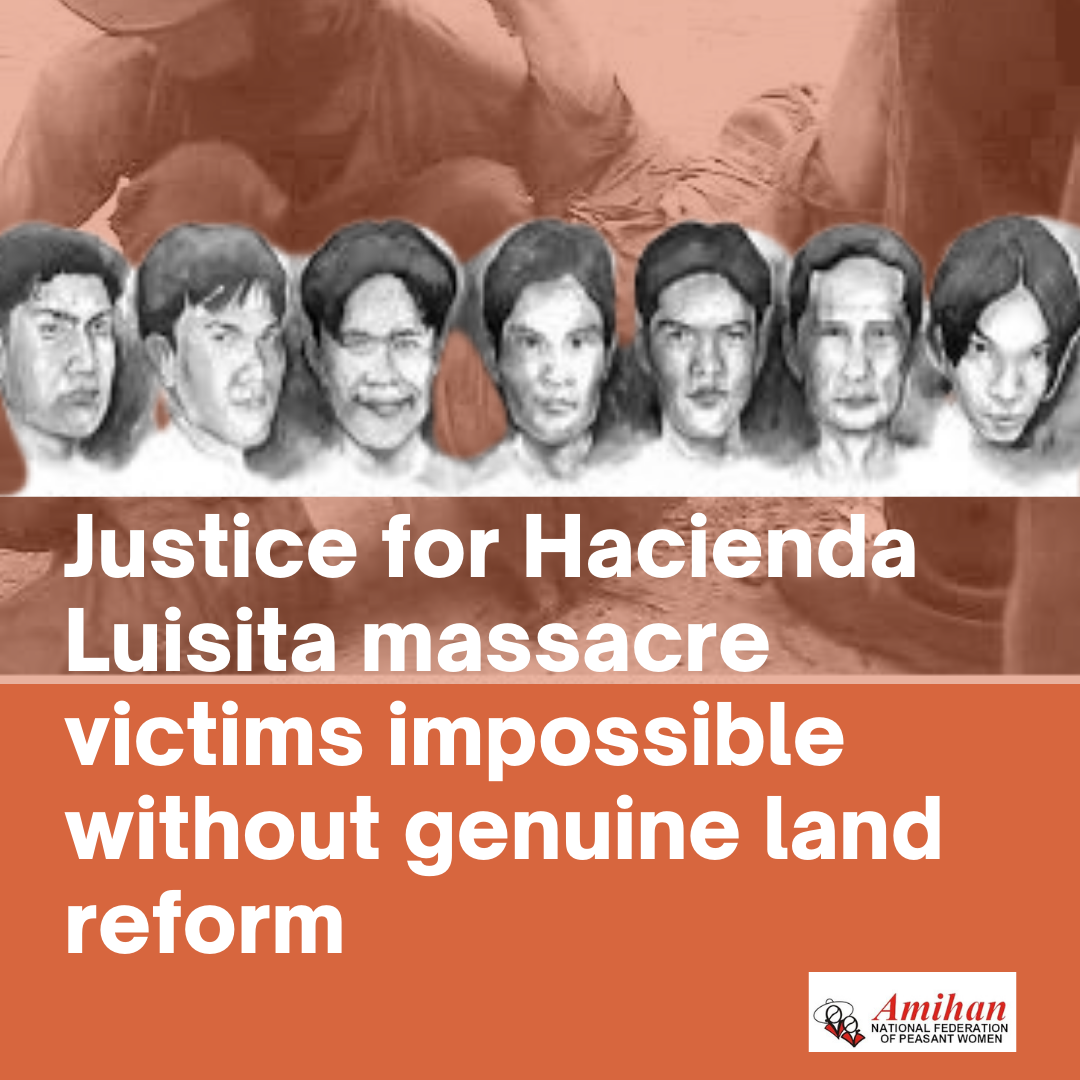On the anniversary of the bloody Hacienda Luisita massacre, the Amihan National Federation of Peasant Women reiterated the 17-year call for justice for the victims. The peasant women group also stressed that the almost two-decade derailment of justice could be traced back to the Cojuangco-Aquino family’s influence and government ties, and to the landowner class’ obstruction of efforts towards genuine, pro-people land reform.
On November 16, 2004, ten days after the farm workers of Central Azucarera de Tarlac began their strike for their wage increase and stop on mass retrenchment, soldiers and the police responded to their calls with open gunfire, teargas, and military vehicles. The violent dispersal led to the death of seven people, while 121 people—including children— were injured. 133 more people were arrested and detained.
“Today we mourn and remember the victims of the Hacienda Luisita massacre, whose just and simple calls for better wage and fair treatment as workers were met with murder,” said Amihan National Chairperson Zenaida Soriano. “Their families, friends, and fellow farmers have not stopped seeking justice, and we will continue to fight alongside them.”
Amihan cited Hacienda Luisita as one of many violent cases in Filipino farmers’ decades-long fight for genuine land reform. The Cojuangco-Aquino’s attainment of Hacienda Luisita in 1957 came with the condition that the land would be distributed to farmer tenants. Their failure to fulfill this condition within the given ten year window forced farmer and farm worker organizations to begin pushing for rightful land distribution.
“After the bloodshed, cases filed against the perpetrators were dismissed and no one was held accountable while Luisita farmers remained victims of bogus land reform,” Soriano said.
Only 4,915 hectares out of the 6,453 hectare hacienda were ordered for distribution by the Supreme Court in its April 2012 decision.
“CLOA distribution is not equal to actual ownership as farmer-beneficiaries still need to fully pay for the amortization payable for 30 years at 6 percent annual interest. A land reform without the farmers’ actual ownership and control of the land and without the sufficient and appropriate support from the government will not emancipate the farmers from feudal and semi-feudal exploitation,” Soriano said.
“With the DAR AO No.1 streamlining land-use conversion process and the Duterte government’s promotion of agribusiness venture agreements (AVAs), farmer-beneficiaries are in danger of displacement,” Soriano added.
“Time and time again, efforts to reopen the case and seek reparations for the massacre victims have been blocked and dismissed. Similarly, hacienderos like the Cojuangco-Aquinos have been able to avoid distributing their land for generations, despite being mandated to do so. So long as the landowning elite have the power to sway the court against pro-people, pro-farmer decisions, justice will remain impossible. Justice for the victims of Hacienda Luisita, and the victims of so many other massacres against farmers, is tied to the fight for land justice,” Soriano ended. ##

